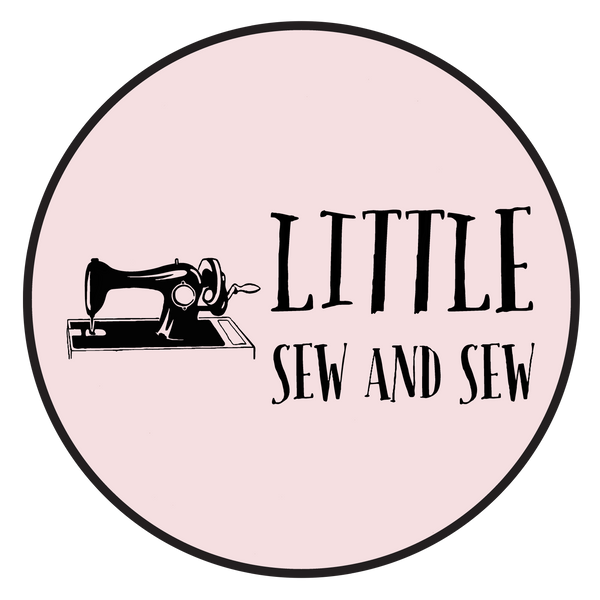
Behind the Scenes: How We're Choosing More Sustainable Fabrics and Yarns
Share
Hello Crafting Community,
As many of you know, I'm passionate about creating a sustainable and ethical crafting space here at Little Sew and Sew. As a vegan business owner, and someone who deeply cares about our planet, this means carefully considering the materials I offer – both yarns and fabrics. I'm making some important changes, and one of those is transitioning away from traditional wool and synthetic materials in both my yarn and fabric selections. While I currently have some of those in stock, I am actively researching and sourcing vegan-friendly and sustainable alternatives. I'm excited to share what I've learned so far!
Behind the Scenes: Our Material Research Journey
Choosing the right yarns and fabrics is a complex process. I want materials that are not only beautiful and functional but also kind to the environment. As a vegan business owner, and someone deeply committed to sustainability, this means carefully considering both the animal welfare and environmental impact of my materials. I am moving away from both animal-derived and synthetic options. Here's a look at some of the options I'm exploring:
Yarns:
-
Organic Cotton:
- Pros: Cotton is naturally breathable, soft, and versatile. Organic cotton minimises the use of harmful pesticides and fertilisers, making it a more eco-friendly choice. It's available in a wide-range of textures and thicknesses and takes natural dyes beautifully. Perfect for summer garments and projects.
- Cons: Traditional cotton production does require significant water usage. Organic cotton addresses some, but not all of the water issues.
-
Hemp:
- Pros: Hemp is an incredibly strong and durable fibre that requires minimal pesticides and water to grow.
- Cons: The processing of hemp into yarn can involve chemical treatments, which can impact its overall sustainability. However, there are brands that are striving to reduce the chemicals used in processing. It is also often a courser yarn.
-
Recycled Fibres (Cotton and Other):
- Pros: Using recycled fibres reduces waste and conserves resources. Recycled cotton and other recycled yarns are a great way to give new life to existing materials.
- Cons: The quality and consistency of recycled yarns can vary.
-
Linen (Flax):
- Pros: Linen, made from the flax plant, is naturally strong, durable, and breathable. It requires minimal water and pesticides to grow. It is also biodegradable.
- Cons: Linen can be less elastic than other yarns, which may affect certain projects.
-
Bamboo:
- Pros: Bamboo is a fast-growing, renewable resource. Bamboo yarn is soft, silky, and naturally antibacterial.
- Cons: The processing of bamboo into rayon (the most common form of bamboo yarn) can involve chemical processes. Look for bamboo linen, which is mechanically processed, for a more sustainable option.
-
Soy (Soy Silk):
- Pros: Soy yarn, also known as soy silk, is made from the by-products of soybean processing, making it a sustainable choice. It's soft, silky, and has a beautiful drape.
- Cons: The production process can involve chemical treatments.
-
Acrylic (Recycled Acrylic):
- Pros: Recycled acrylic reduces the amount of new plastic being produced.
- Cons: Traditional acrylic is a synthetic fibre made from plastic, contributing to microplastic pollution. It's not biodegradable. We are moving away from all synthetic yarns, but understand that recycled acrylic is a better option than new acrylic.
Fabrics:
- Organic Cotton Fabrics: (Pros: Same as yarn. Cons: Same as yarn)
- Linen Fabrics: (Pros: Same as yarn. Cons: Same as yarn)
- Hemp Fabrics: (Pros: Same as yarn. Cons: Same as yarn)
-
Tencel/Lyocell:
- Pros: Made from sustainably sourced wood pulp, it's soft, breathable, and biodegradable. Closed loop production means less waste.
- Cons: Chemical processes are still involved, but less than rayon.
-
Bamboo Fabrics:
- Pros: Same as bamboo yarn.
- Cons: Same as bamboo yarn.
-
Recycled Fabrics (Polyester, Cotton, etc.):
- Pros: Reduces waste and conserves resources.
- Cons: Quality can vary; recycled polyester can still shed microplastics.
-
Cork Fabric:
- Pros: Sustainable harvest from cork oak trees, naturally water-resistant, durable.
- Cons: Limited colour and texture options.
Our Commitment:
I am committed to providing you with the most sustainable and ethical yarn and fabric options possible. This means focusing on natural, plant-based, and recycled fibres. I'm actively seeking out suppliers who share my values and are transparent about their production processes.
I am also looking into recycled wool options, and understand that some people do prefer to use wool.
Your Input Matters:
What are your favourite sustainable yarns and fabrics? Do you have any recommendations for vegan-friendly alternatives that are also environmentally responsible? I'd love to hear from you in the comments below!
Thank you for joining me on this journey towards a more sustainable crafting future.
From my crafting table to yours,
Ashley
